
Shikha Shrestha from Nepal has worked at VSO for the past seven years. Across multiple roles, Shikha has helped design programmes that deliver impact and help the most marginalised people to lead their own development. Here is her story.
What compelled you to work in the development sector?
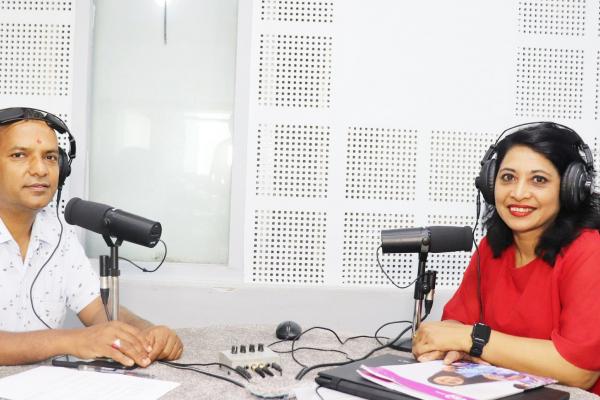
"Nepal is highly vulnerable to natural disasters, which are often intensified by the effects of climate change. According to United Nations Development Programme, Nepal ranks fourth, eleventh, and thirtieth globally in terms of vulnerability to climate change, earthquake, and flood risks, respectively.
With this in mind, I wanted to do more to mitigate the negative impacts of climate change and protect natural resource management. This motivated me to complete my master’s degree in Forest Ecology and engage in a research institution, conducting botanical studies aligned with social goals.
During my work, I was struck by the significant contributions women make in conservation, yet their weak representation in decision-making processes within the sector. It was even more shocking to see that the frequent natural disasters in the country disproportionately affect the most vulnerable groups—women, children, youth, people with disabilities, and other marginalised communities.
This realisation prompted me to shift my career from botanical research to the social sector, with a greater passion for promoting leadership among women and marginalised communities.
My journey in the development sector began with South Asia Partnership, where I cultivated my knowledge. I was fortunate to join organisations like CARE and WaterAid, where I further honed my skills in gender, advocacy, and governance, always embedding human rights principles in my work.
My commitment to advancing the leadership of women and girls also led me to volunteer with various national organisations.
What inspired you to work with VSO?
I was thrilled to join an organisation like VSO in August 2018, which promotes the philosophy of volunteering for development—a philosophy that aligns perfectly with my personal values of building social capital through volunteers to create a more inclusive society.
I believe that in development work, the focus should always be on the people. VSO brings together a diversity of volunteers – from community to national and international volunteers – who all bring their competencies and experiences to the task of development work.
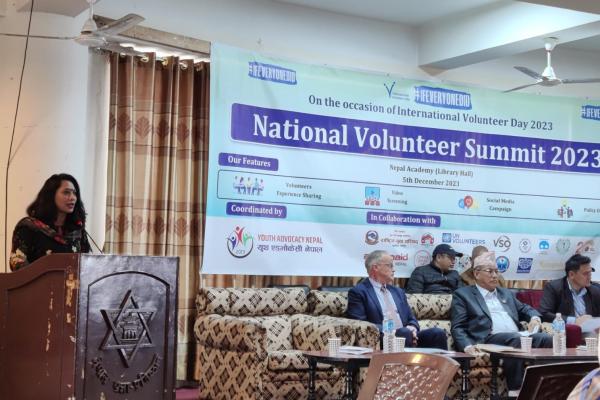
I believe that in development work, the focus should always be on the people. VSO brings together a diversity of volunteers – from community to national and international volunteers – who all bring their competencies and experiences to the task of development work.
With a people-centred approach, they collaborate with each other and the communities, building them up to achieve a more inclusive society.
What has your experience at VSO been so far?
I joined VSO as Head of Programmes-Inclusive Governance. I was part of the team that designed Strengthening Access to Holistic, Gender Responsive, and Accountable Justice in Nepal (SAHAJ) project, that aimed to reduce the vulnerability of women and girls to gender-based violence by raising awareness, empowering them, and increasing their access to services to combat gender-based violence.
I was also part of the project focused on Promoting Inclusive Resilience and Accountability through Youth Association Strengthening (PRAYAS), which contributed to encouraging innovation and engaging Nepali youth at the local level so that they could participate in climate action and contribute to formulating responsive and relevant climate policies. These early wins encouraged our team to put more effort into growing our country footprints.
A country-level restructuring gave me the opportunity to provide programmatic leadership to all the project interventions that promote inclusive education. I contributed to providing technical assistance from a gender and social inclusion perspective.
I am currently working as a Project Implementation Lead. I am responsible for managing all projects to ensure their effective implementation. I also provide line management support to all project managers to ensure they maintain optimal performance and accountability.
I collaborate with multi-disciplinary teams across the global organisation. The challenge lies in synergistically working with all these teams. I am fortunate to have proper oversight support from my line manager and other colleagues who help me maximise my potential.
What do you think makes VSO's approach to development unique?
Our volunteers work with marginalised communities, adopting a People First approach that entails fully involving and empowering the most marginalised to lead the way in poverty reduction so they will take ownership and sustain their own development.
As VSO, we believe in creating lasting change through volunteering to create a “fair world for everyone”.
Our volunteers work with marginalised communities, adopting a People First approach that entails fully involving and empowering the most marginalised to lead the way in poverty reduction so they will take ownership and sustain their own development.
These volunteers play pivotal roles in empowering communities to enable them to claim their rights and work with duty bearers to promote their accountability to protect human rights.
Another unique VSO approach is blended volunteering, wherein international, national and community volunteers work together to achieve sustainable development. By combining our efforts and focusing our respective competencies on achieving a common goal, we build social capital at the community level and sustain changes even without the programmatic presence of VSO.
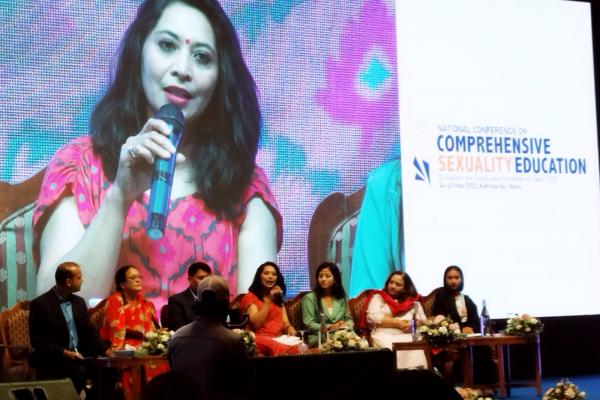
What does your average day look like?
Each day is different, depending on the agenda. I start my morning with my social duties—cleaning, watering my plants, and performing puja. This daily ritual helps me connect with a higher power, express gratitude, and receive positive energy to face life’s challenges. After a quick breakfast, I ride my scooter to the office.
At work, I engage with various colleagues, providing support based on their specific needs. This could involve assisting with financial and operational tasks, working with the technical team on risk assessments, or collaborating with the people team to ensure competency-based recruitment, talent, and performance management.
I also consult with the operations and finance team to ensure we meet regulatory and due diligence requirements as well as manage risks across the project portfolio, and work with the practice area teams to ensure technical leadership of the project. We operate as one cohesive unit, valuing collaboration to achieve our shared goals.
I take great pride in seeing my colleagues grow professionally and take on more leadership roles. It’s fulfilling to help them sharpen their skills and improve their performance. I feel fortunate to work with such strong, accountable individuals who are committed to continuous learning.
We also enjoy morning tea and lunch together in our office mess hall. These moments are often spent discussing politics, development philosophies, and our personal interests. These shared times have greatly contributed to building a strong team spirit.
What has been the most rewarding experience from your time at VSO so far?
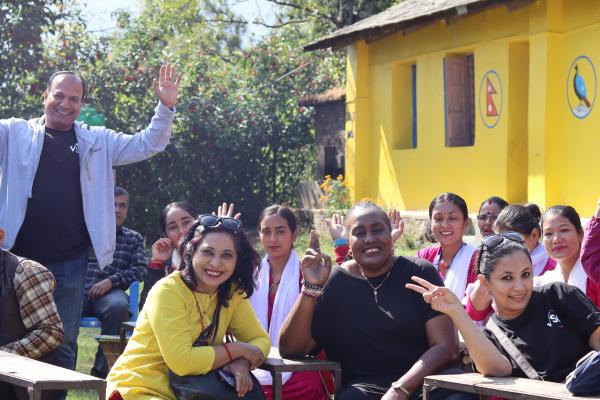
At VSO, we run a project called Sisters for Sisters, where Big Sisters support younger sisters in accessing quality education.
The Big Sisters play a crucial role by promoting regular school attendance through mentoring and coaching, while also raising awareness among parents about the importance and relevance of education. They engage with school governance members, including teachers, to create safer, more child-friendly school environments.
Additionally, Big Sisters identify out-of-school children and motivate both them and their parents to re-enrol in school, helping to protect every child's right to education.
These Big Sisters are true gems within the community, showing that women and girls can lead. They are recognised as social champions, and their families are now known by their names—a powerful shift in gender dynamics.
It’s common to hear Big Sisters proudly say, “My father or husband is now known by my name.” This marks a significant change in the power balance, and these stories are valuable examples of gender transformation, where society begins to appreciate the role of women as change agents, especially in promoting gender equality and access to essential services like quality education.
Recently, the EU organised a Civil Society Seminar from May 20-22, 2024, where two of our Big Sisters, Pooja Singh and Sabita Thakur, shared their inspirational stories of gender transformation.
For them, these roles have not only established them as community leaders but have also enabled them to shift power dynamics at both the household and societal levels. Their influence has extended beyond themselves, impacting their mothers and grandmothers as well.
It’s inspiring to see these Big Sisters making a far-reaching impact by challenging harmful norms and fighting gender discrimination. Witnessing these women confidently share their life stories on larger platforms is incredibly rewarding, as it inspires others to commit to promoting gender-responsive norms and practices.
How do you think you have changed personally and professionally during your time at VSO?
These Big Sisters are true gems within the community, showing that women and girls can lead.
VSO has played a key role in my professional growth, and I am truly grateful to my line manager for their constant support in helping me develop. Through my experience, I have gained the skills needed to manage programs and teams across diverse areas such as education, health, livelihoods, climate change, and resilience, while also incorporating key aspects of gender, social inclusion, and youth engagement.
Working on projects like SAHAJ and the UNFPA-supported Gender-Based Violence Prevention and Response programme has expanded my knowledge and skills, particularly in applying a systematic approach to transforming harmful social norms and practices.
We have adopted operational models, such as the family-centred approach, school-centred approach, and grassroots-based accountability, to address and transform harmful norms around reporting and speaking out against gender-based violence.
My time at VSO has also given me valuable insights into global volunteering standards and the blended volunteering model, deepening my understanding of how volunteering can drive sustainable development.
What does your ideal day off look like? What brings you joy outside of work?
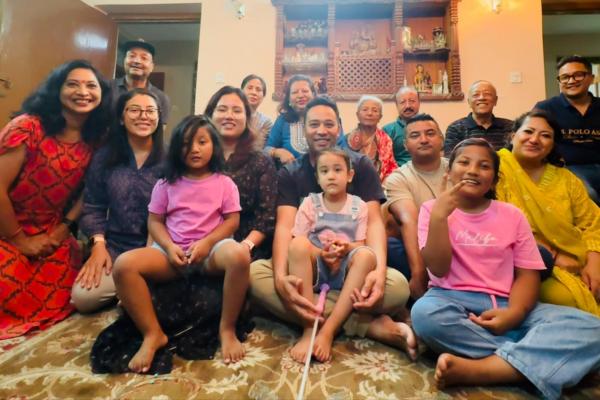
During office days, it can be hard to find time for family. On my days off, I make sure to spend more time with them, especially my mother, who has been feeling lonely since we lost our father two years ago. It’s always a comforting experience to be with her, enjoying good food and reminiscing about our father and childhood memories.
I also use this time to give extra attention to my plants at home. Seeing them bloom after putting in long hours of care brings me a deep sense of satisfaction and fulfilment.
Tending to these plants reminds me of the importance of patience and persistence in bringing about positive change. Flowers like roses, for example, show that beauty can emerge even among thorns. These gardening experiences also highlight the value of respecting diversity.
I also enjoy contributing my time to various national organisations, especially in supporting efforts to promote leadership roles for women from marginalised communities.
I’ve been involved in designing interventions aimed at empowering indigenous women, and it’s incredibly rewarding to see some of these women being elected as ward members in their municipalities.
What advice would you give to someone considering starting a career in the development sector?
It is essential to have a passion for changing lives and a commitment to promoting leadership roles among marginalised communities, empowering them to take charge of their own development process.
As a development leader, it's important to be inclusive and participatory, providing a platform where everyone can voice their concerns. We need to take the community’s aspirations into account, allowing them to shape their own development journey and lead with confidence. This approach fosters local ownership and leadership, which is crucial for ensuring the sustainability of these efforts.
Flexibility is also key, as circumstances often change. It’s important to constantly analyse, assess, and be prepared to adapt, so that development interventions meet the evolving needs and aspirations of the community.
What are your aspirations for the future? What is next for you?
With my experiences in leadership and program management, I will be offering mentoring support to help strengthen feminist leadership within the organisation and beyond. I strongly believe that my knowledge and experience can help other development professionals grow more in their roles.
In Nepal, there are only a few experts in adopting a systemic approach to transforming harmful social norms and practices. My time at VSO has given me invaluable insights into norms transformation, and I plan to apply the lessons I’ve learned to contribute to the vision of creating a fair world for everyone.”
Life at VSO
Here at VSO, we have a team that operates across the world. Our Life at VSO blog series gives you an insight into what life is like working for a world leading international development through volunteering organisation.
Read more
Protecting the biodiversity of the East Tonlé Sap Lake through aquaculture
Aquaculture — the farming of aquatic organisms, such as eels, shellfish, and seaweed, in a controlled environment — is transforming the lives of people like Mr Em Phat, who are living on the East Tonlé Sap Lake in Cambodia.
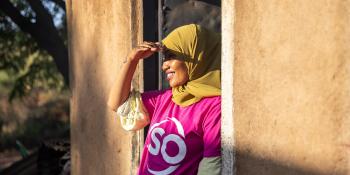
Five things women achieved this year that you might not know about
This International Women's Day, join us in celebrating the resilience of women across the globe with some female achievements you might not have heard about.
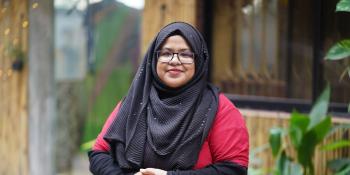
Breaking barriers: Lamia's journey of volunteering, leadership, and gender equity
Bangladesh - Lamia Tasnim's volunteering journey began in 2018, and over the course of the last six years, her passion for supporting her community has only grown.
